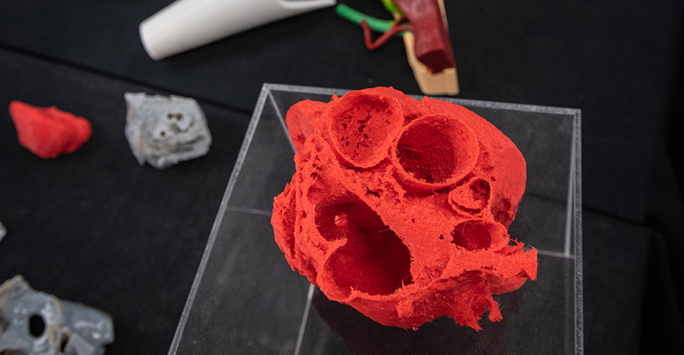Postgraduate study
At the School of Medicine, you can choose between postgraduate taught/master's or postgraduate research.
Generally, postgraduate study is undertaken once you have finished a bachelor’s degree. Alternatively, student doctors at Liverpool can also choose to "intercalate", taking a year out of the MBChB programme to pursue a specific area of interest. Many intercalating students choose to pursue a PG qualification with a specific medical focus.
Postgraduate taught/master’s programmes (PGT)
A master's degree is a "level 7" qualification - with learning outcomes above those of Bachelors degrees but below PhD level.
Postgraduate taught/master's degrees are structured, and in some ways they are a lot like undergraduate programmes. You’ll complete a series of modules following a set timetable of seminars, lectures and other activities. You’ll be much more responsible for studying independently in your free time, but the expert academics in charge of your course will lead you through it.
Study one of our master’s programmes and you'll be taught by enthusiastic, approachable staff who are all active researchers and/or practising clinicians.
Benefit from close links with other schools and research institutes within both the Faculty of Health and Life Sciences and wider University create exciting interdisciplinary opportunities for research and learning.
There's no better place to pursue your interests or broaden your professional horizons.
- MSc Palliative and End of Life Care
- MSc Global Healthcare Ethics
- Master of Public Health
- Master of Public Health (Online).
Find out more information on the University’s master’s programmes and studying at Liverpool.
Postgraduate research opportunities (PGR)
Postgraduate research degrees are more independent in nature than PGT options, with fewer timetabled units (in fact, you may not have any). Instead, you’ll focus on one or more extended projects. You’ll still receive support and guidance from an expert supervisor, but the focus of your programme will be on your own research work.
Postgraduate research opportunities in Medicine are offered by the University’s research institutes:
- Institute of Life Course and Medical Sciences
- Institute of Infection, Veterinary and Ecological Sciences
- Institute of Population Health
- Institute of Systems, Molecular and Integrative Biology.
More information on the University’s research opportunities and studying at Liverpool.

MRes intercalation options
An MRes is a one year research-based master's. Whilst some programmes offer taught modules, the emphasis is mainly on research – at least two thirds of the course consists of research project work. An MRes is an excellent introduction into research methods.
The Faculty of Health and Life Sciences offers the following MRes programmes: